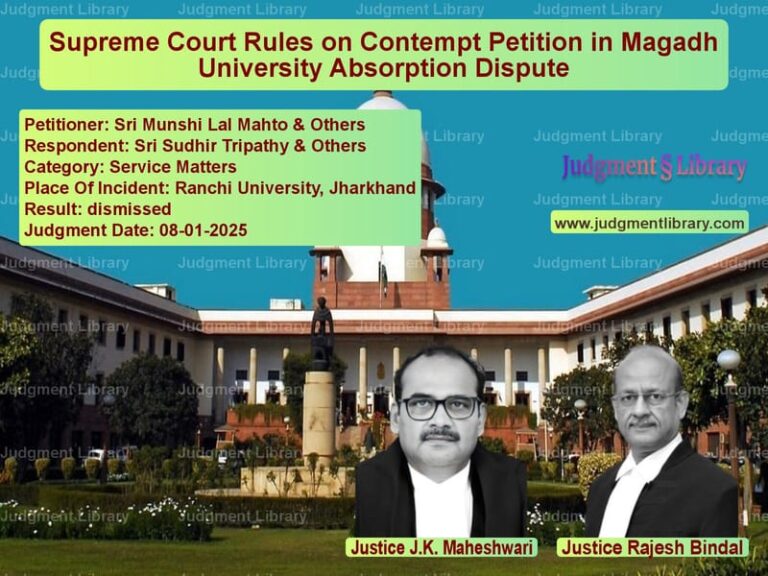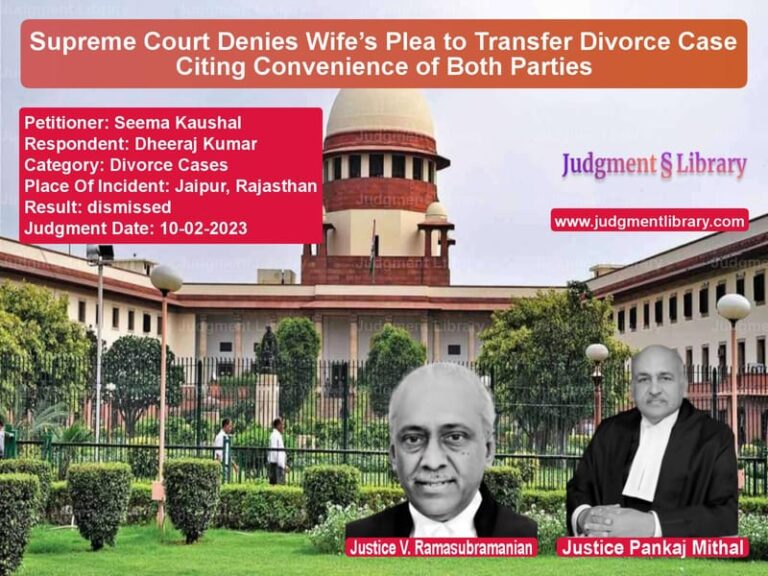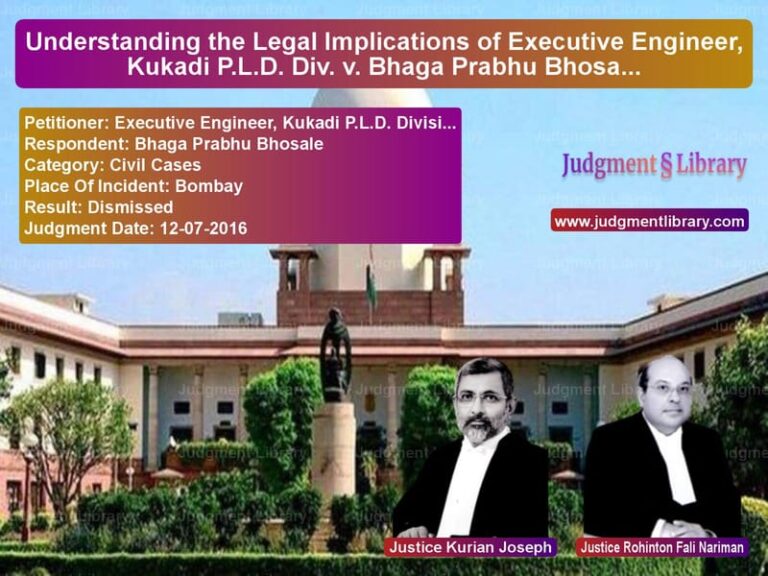Supreme Court Dismisses Panama Papers PIL: Investigation to Continue Under Multi-Agency Group
The Supreme Court of India recently delivered its verdict in the case of Manohar Lal Sharma vs. Central Bureau of Investigation & Ors., addressing the demand for a separate probe into Indian individuals named in the Panama Papers Leak. The case involved allegations of money laundering, tax evasion, and financial fraud by individuals and entities holding undisclosed offshore accounts.
The petitioner, Manohar Lal Sharma, filed a Public Interest Litigation (PIL), seeking a direction to the Central Bureau of Investigation (CBI) to investigate Indian citizens whose names appeared in the leaked documents. He also sought the registration of FIRs against the Securities and Exchange Board of India (SEBI), share brokers, and companies allegedly involved in illegal financial activities. The Supreme Court, however, dismissed the petition, stating that an existing Multi-Agency Group (MAG) was already investigating the matter and no separate SIT was required.
Background of the Case
The Panama Papers, a massive data leak from Mossack Fonseca, a Panamanian law firm, exposed thousands of offshore accounts linked to politicians, business leaders, and celebrities worldwide. The revelations triggered global investigations into tax evasion and money laundering.
In India, the government constituted the Multi-Agency Group (MAG) to investigate the individuals and entities mentioned in the leak. The petitioner, dissatisfied with the government’s efforts, approached the Supreme Court, arguing that SEBI and other regulatory agencies had failed in their duty to curb financial crimes.
Arguments of the Petitioner
The petitioner, appearing in person, argued that:
- The Panama Papers revealed systematic money laundering, tax evasion, and illegal offshore transactions by influential individuals.
- SEBI had failed to regulate the stock market, allowing black money to circulate through participatory notes and offshore accounts.
- The government’s response was inadequate, and a Special Investigation Team (SIT) should be constituted to probe the case independently.
Arguments of the Respondents (Government and SEBI)
The government, represented by the Ministry of Finance and Economic Affairs, countered:
- The Multi-Agency Group (MAG) was already investigating the Panama Papers leaks.
- MAG comprised officers from the Central Board of Direct Taxes (CBDT), Reserve Bank of India (RBI), Enforcement Directorate (ED), and Financial Intelligence Unit (FIU).
- By September 2016, the MAG had submitted six reports, and investigations were ongoing.
- SEBI had put in place regulations under the Prevention of Money Laundering Act, 2002 (PMLA) and issued guidelines to prevent illegal financial activities.
Supreme Court’s Key Findings
The Supreme Court, after reviewing the submissions, ruled:
“Public Interest Litigation is a mechanism by which this Court can initiate action for protection of rights of public on account of inaction of any public authority. At the same time, the PIL weapon is to be used with great caution, keeping in mind that governance is the basic function of the Executive. Unless there is a clear abuse of power or failure of governance, the Court may not interfere.”
The Court further noted:
“SIT has already been constituted under the orders of this Court, comprising two former judges of this Court. The terms of reference of the SIT cover the subject matter of this petition, and the government is actively pursuing investigations.”
Final Judgment
The Supreme Court dismissed the petition, stating:
- The Multi-Agency Group (MAG) was already monitoring the case.
- Further reports from MAG would be submitted to the SIT on black money.
- No additional SIT was required, and the government was directed to continue its investigation.
Key Takeaways from the Judgment
This ruling establishes several important legal principles:
- Judicial Restraint in PILs: The Court emphasized that PILs should not interfere with executive functions unless there is clear evidence of inaction.
- Existing Investigations: When a competent body is already investigating a matter, courts should not create parallel inquiries.
- Role of Regulatory Bodies: SEBI and other agencies were recognized as responsible entities for monitoring financial transactions.
- Prevention of Money Laundering: The Court highlighted the importance of financial intelligence agencies in preventing illicit fund flows.
Legal Implications of the Judgment
This ruling has a significant impact on financial investigations and public interest litigations:
- It reaffirms the role of the Multi-Agency Group (MAG) in handling large-scale financial probes.
- It sets a precedent that courts should not interfere in ongoing investigations unless there is clear evidence of negligence.
- It strengthens SEBI’s role in monitoring offshore transactions and preventing stock market manipulation.
Conclusion
The Supreme Court’s decision in Manohar Lal Sharma vs. CBI & Ors. reinforces the principle that financial investigations should be conducted by specialized agencies rather than through judicial intervention in PILs. By dismissing the petition, the Court ensured that the government’s existing mechanism through the Multi-Agency Group remains the primary body responsible for probing the Panama Papers disclosures. This ruling provides clarity on judicial intervention in economic matters and strengthens regulatory oversight in India’s financial sector.
Don’t miss out on the full details! Download the complete judgment in PDF format below and gain valuable insights instantly!
Download Judgment: Manohar Lal Sharma vs Central Bureau of In Supreme Court of India Judgment Dated 09-10-2017.pdf
Direct Downlaod Judgment: Direct downlaod this Judgment
See all petitions in Public Interest Litigation
See all petitions in Fundamental Rights
See all petitions in Legislative Powers
See all petitions in Judgment by Adarsh Kumar Goel
See all petitions in Judgment by Uday Umesh Lalit
See all petitions in dismissed
See all petitions in supreme court of India judgments October 2017
See all petitions in 2017 judgments
See all posts in Constitutional Cases Category
See all allowed petitions in Constitutional Cases Category
See all Dismissed petitions in Constitutional Cases Category
See all partially allowed petitions in Constitutional Cases Category







